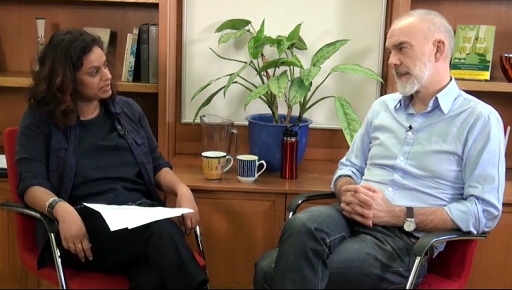1.4 Magh Mela: some concluding thoughts
The Magh Mela case study stands in stark contrast to the conception of the anti-social crowd that dominated the early decades of crowd psychology. But the crowd that undergoes a cognitive and relational transformation, and whose members may be intimate and cooperative with each other towards their progressive goals, may also be in political opposition to other groups. It is worth considering both what is present within the Magh Mela crowd that promotes well-being, and also what is absent. There is an absence of tension within the Magh Mela crowd because other groups with different identities are not simultaneously present. This may be a key factor in the way that crowds enhance well-being.
Let us now see what the main author of the Magh Mela study, Nick Hopkins, finds important about the pilgrimage. He is in conversation with Open University academic Kesi Mahendran.

